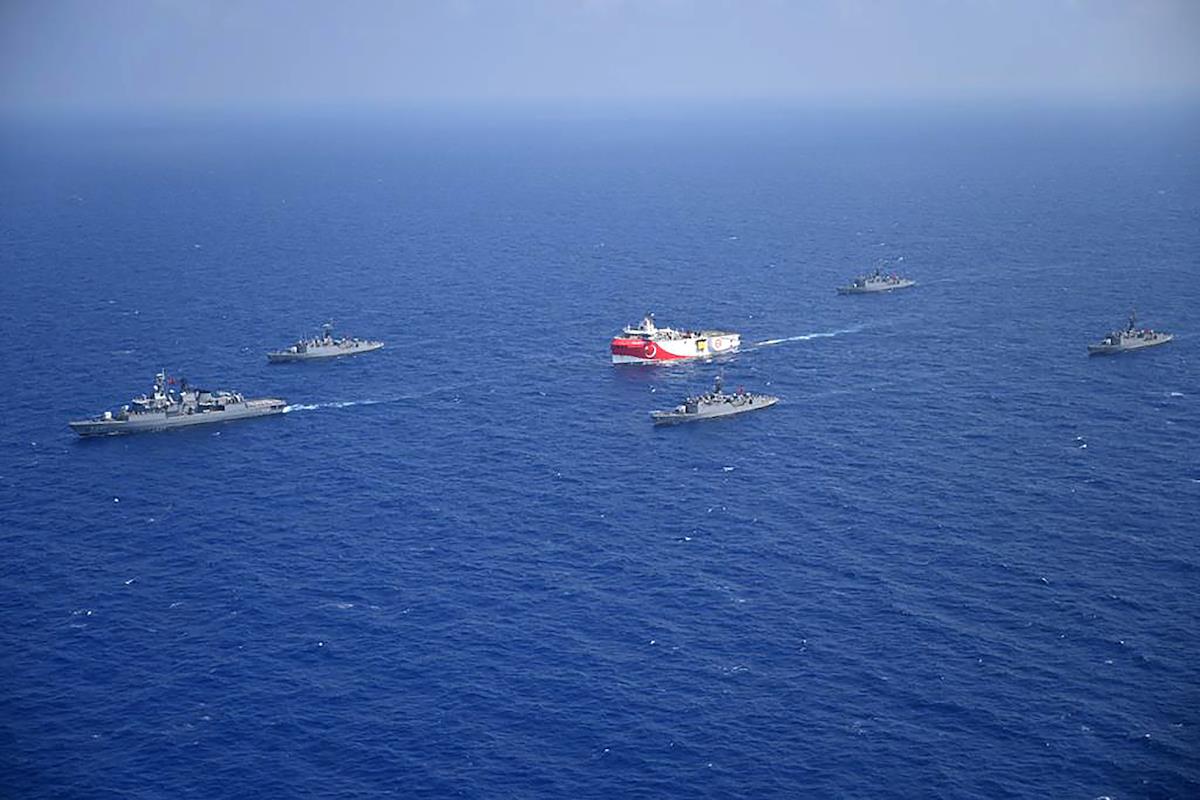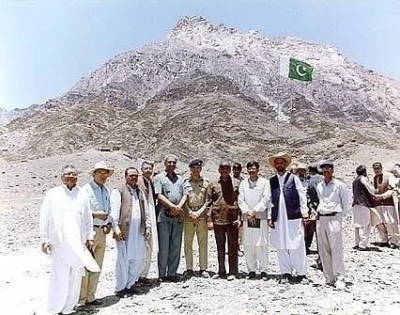The Washington-based Baloch American Congress (BAC) has unfurled the campaign for the independence of Balochistan from Pakistan.The BAC is lobbying with American Congressmen as well as collecting petitions from the common people to pressurise Pakistan to stop extra-judicial killings and enforced disappearances of the Baloch community.
The committee has never held even a single in the last two years after changes took place in Sudan, though the government of the Republic of South Sudan has been talking to the African Union to ensure the activities of the committee resumed,” he further disclosed.
Established in 2011 after clashes between the Sudanese army and the SPLA on the eve of the secession of South Sudan from Sudan, the committee is depicted as a crisis management body tasked to oversee the administration and take responsibility for security issues.
The agreement on the temporary arrangement forming the committee requires it to hold monthly meetings and receives reports, briefings, requests, and calls from the members of the executive council.
Kuol described the Abyei committee as very important because it is a body responsible for political and administrative oversight over the executive council on behalf of the Sudanese and South Sudanese presidents.

“It is a very important mechanism because it submits reports and conducts briefings to the presidents. It provides time guidance and decisions to facilitate the timely and effective implementation of the various agreements as well as the establishment and sustainment of a stable and secure environment in Abyei”, he said.
The resumption of the AJOC activities comes within a series of agreements between the two countries to open borders and enhance security cooperation and transborder trade between local communities on the two sides.
The two countries however still have to form local police to establish joint administration in Abyei.
The Ngok Dinka resist these local administrative structures. Instead, they call for holding a referendum in the border region.
However, Khartoum and Juba failed to reach an agreement on who can participate in this crucial vote.
The developing cooperation between the governments frustrates the Ngok Dinka who also recently suffered attacks from the Twic Dinka following the eruption of an old dispute over Anet, an area between Abyei and Warrap of South Sudan.
India Narrative catches up with Dr Tara Chand, president of the BAC, who is raising awareness about the basic human rights of the Baloch nation amongst the people in the US.He says that because of the China Pakistan Economic Corridor (CPEC) both Pakistan and China are complicit in the ethnic cleansing of the Baloch people—which comprises less than 10 per cent of the Pakistani population with over 45 per cent of Pakistan’s landmass endowed with minerals.
Dr Tara Chand is amplifying the voice of the Baloch people in the US against human rights violations by Pakistan (Photo: Dr Tara Chand)
Excerpts from the interview:
Q: At one time you were a minister in Balochistan, so why is it that you are in exile in the US now?
Tara Chand: I was always active in Baloch politics.I had joined the Baloch Students Organisation in school and after completing my education joined the Balochistan National Party (BNP) led by chief of the influential Mengal tribe, Sardar Akhtar Mengal.
I won the general elections in 1997 and became a minister under Chief minister Sardar Akhtar Mengal’s leadership.
One day while watching the news we came to know that the Pakistani army had conducted nuclear tests in Balochistan.
The tests were conducted at a site near the Reqo Dik and Saindak gold and copper mines.Surprised, the chief minister rang up the then prime minister Nawaz Sharif.
Sharif said even he was not aware of the nuclear tests as the army had kept it a tightly guarded secret.Sharif also told Sardar Mengal that he was unaware of the location of the tests because the army had kept two possible sites—Chagai in Balochistan and Tharparkar in Sindh.
Our party was against the nuclear test in Balochistan.And, we were not even informed despite running the government there.We protested against the test.So, the army asked us why we were protesting because the nuclear tests were done in the security interests of Pakistan.
We told the army that we were not informed despite being in government and nuclear tests harm the environment.
The Pakistani intelligence started a conspiracy.
Our party lost the majority in the assembly and became the opposition.This is a daily occurrence in Pakistan where the governments are formed and pulled down by orders of the army.
Soon after, there was a coup and General Pervez Musharraf took over the government in Pakistan.Even the provincial assemblies were dissolved.
I was asked to join Musharraf’s party which I refused.I was put on the Exit Control List (ECL).
Then the intelligence agencies developed information that I was in touch with the Indian High Commission.When I came to know about this, I went underground for two months and came to the US.I was scared for my life as I was getting constant threats and would keep seeing my name in the newspapers.
Q: Do you still believe that the existence of the Baloch nation is in danger? Is the Pakistani military actually carrying out a genocide of the Baloch people?
Tara Chand: The Baloch people had to face four military operations before 2005.The fifth one, which is currently on, is the longest running operation against the Baloch nation.A racial, cultural and linguistic genocide of my people is actually taking place.
The longstanding neutrality of Sweden and Finland was abandoned when both states submitted formal applications to N ATO. But they are facing an unexpected obstacle on the way to membership: Turkey .
While Turkey supports the alliance's“open door” policy, Ankara's veto reflects its aims to change the status quo and make gains in three areas: the eastern Mediterranean, Syria and its own domestic politics.
Turkey has always had bumpy relations with NATO. In 2009, Ankara blocked the appointment of the former Danish prime minister, Anders Fogh Rasmussen, as NATO secretary-general, because of his defense of free speech during the Danish cartoons crisis in 2006. He also allowed a rebel Kurdish TV station to broadcast from Denmark into Turkey.
Another low point was in 2019 when Turkey started a military campaign against the Kurdish forces in Syria. This led to NATO secretary-general, Jens Stoltenberg, criticizing Ankara for“jeopardizing” the fight against Islamic State.
The current crisis is in some ways a hangover from previous episodes, particularly in relation to the Kurdish region in Syria. But it is unfolding against the backdrop of different geopolitical realities, including the deterioration of relations between the West and Russia, as well as a new domestic political context in Turkey.
Turkey vs Greece
There is an interesting backstory to the recent confrontation between Greece and Turkey involving tensions between the US and Turkey – which have been building up for some time .
When, in 2017, Turkish President Recep Tayyip Erdogan and Russian leader Vladimir Putin agreed on a deal for the purchase of the Russian S-400 missile system, the US retaliated with the exclusion of Turkey from the F35 jet fighters development program, banning Turkey from the purchase of the jets.
The Biden administration has reportedly been considering dropping this ban in recent months, prompting the Greek prime minister, Kyriakos Mitsotakis, to urge the US Congress to reconsider.

The Turkish seismic research vessel 'Oruc Reis' (C) escorted by Turkish Naval ships in the Mediterranean Sea, off Antalya on August 10, 2020. Photo: Handout
There's a complex background to all this. Athens is a key player in eastern Mediterranean energy politics, and the exploration of energy sources in the contested waters of the eastern Mediterranean as well as Egypt's need to transport its natural gas exports to Europe has forged an alliance between Greece, Israel, Egypt and Cyprus – a bloc which excludes Turkey.
Meanwhile, the EU has sanctioned two executives of Turkish Petroleum Incorporated Company for “illegal drilling activities” , because they were unauthorized by the Republic of Cyprus, which claims sovereignty in the area.
But as the search for alternative energy sources for Europe continues against the backdrop of the breakdown of relations with Russia over the war in Ukraine, Ankara sees an opportunity to break its isolation by becoming an energy hub for the west.


No comments:
Post a Comment